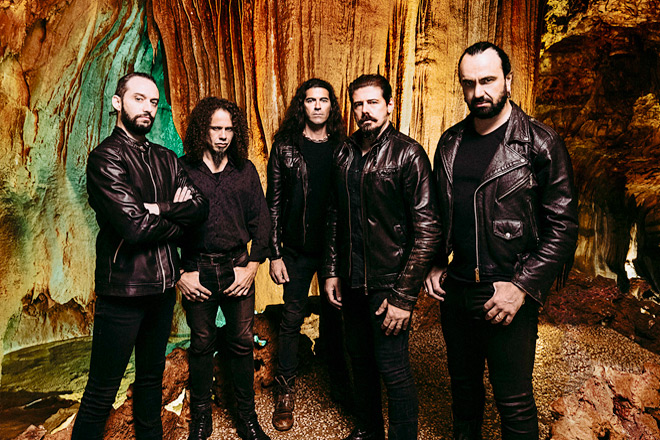
The uncertain winter of 2021 sees the release of Hermitage, the thirteenth spell from these musical magicians, released via Napalm Records and eerily reminiscent of the times in which we find ourselves. Recently, the affable, loquacious voice of Moonspell, Fernando Ribeiro, sat down to chat about the new album and a great many other things, as well. The story of Hermitage is one of isolation, but it begins with a superb band coming together to strum the chords of solitude as one…
Cryptic Rock – When you recorded your first album, Wolfheart, in 1995, did you think that over 25 years later you’d be sitting here doing press for your 13th studio album? And back then did you think people in far-flung lands around the world would stumble across your debut album?
Fernando Ribiero – Actually, I can’t help feeling surprised about it, because in Portugal we were far away from everything; we were far away from the bands that we loved. Eventually when we went to record for the first time in Germany, and we did some interviews, etc., we kind of got more the hang of it. But for us it still is surprising to hear a story like yours, that you go to the suburban mall, and Wolfheart is available in The States, you know? That somebody will pick it up and become a fan, that, for us, was completely science fiction. We finished the album in Germany, which was my first time taking a plane.
We asked Century Media for two extra days of mixing. Don’t ask me why, but we did. We thought we didn’t have enough time, and the label thought we were all over the place. There’s Folk, there’s vampires, there’s Metal, there’s wolves, but what is this, man? This is like a big melting pot; “it is so Portuguese of you guys.” I don’t really mean it in a good way or in a bad way. But then I was listening to it and the impression I had was that “wow, I can listen to my vocals, man.” And I said, “It’s not that bad.” That’s what I thought, that was my first mental recollection of Wolfheart. We had no idea the impression the album was making. We would receive album reviews for Wolfheart in the mail from Germany, all in German, and we had no idea what they said!
I thought the album was going to just suck, because the band was all over the place and we were six members back then. It was our first album: we were always fighting about the musical direction, that’s why there is a little bit of everything for everyone. It’s unbelievable that after so many years, not only I’m here discussing a totally different album, but also that Wolfheart became, from the little Portuguese stage, to be written in the history of European Metal which then made it even overseas.
I will never cease to be… I’m the kind of guy that really takes nothing for granted. I’m not saying this about being humble, I think it’s important being humble, but I never, ever expected Moonspell to do anything. All the odds were against us: Portuguese band, not really playing by a formula that we were smart enough to replicate or whatever. Even our first effort, Under the Moonspell (1994), was really weird and then it, Wolfheart, is less weird, I have to say. Then Irreligious became a big success for us with songs that went on the radio and everything.
We’re coming to 30 years, a lot of water’s gone through the bridge, but I remember Wolfheart being just a big, big surprise. I think I have this thing if I was at the shop with you, I would be hysterical, “I can’t believe that dude is picking up a Moonspell record.” You know, it’s just… you don’t see it happening. It’s like I would sometimes compare being in a band, especially from Portugal, not now that we are connected, but back then I always had this image in my mind, like this guy, this lonely, radio guy that is broadcasting from… I don’t know, some kind of trailer park, whatever, and he still does it, and he still has passion for it, but he doesn’t know if people are listening to him or not. And I think I saw Moonspell a little bit like this.
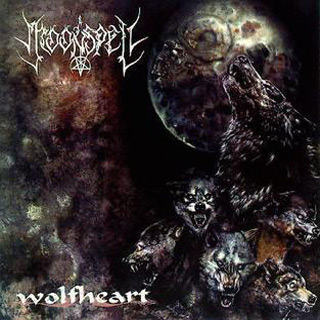
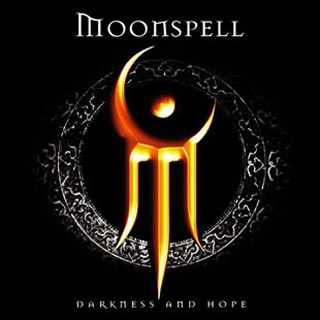
Cryptic Rock – It has certainly been an amazing and rewarding journey. Regarding the new album, Hermitage, we don’t know how history will look back at it, but this might be one of the premier Moonspell albums. Also, it’s the first album written entirely for this socially isolated era. At what point in the conception of Hermitage did it become about the times in which we live, or did the whole writing process take place during this time frame?
Fernando Ribiero – It’s weird, actually. Some people said it’s almost prophetic, but I have to say that the mood swings and the changes between albums, it’s also the thrill of European Metal. A lot of bands have kept their options open in a way, especially bands that come from the Century Media background. Century Media was such a fusion label. I remember Tiamat’s Wildhoney (1994), I remember Sentenced, the Gothic Rock, the psychedelic influence. But coming back to us, obviously, I think that it’s hard for me because I’m so involved in the album, but I think it’s a grower, definitely.
Sometimes people are like, “Well, this is not exactly what I wanted,” but they kind of respect us enough to give it another chance. And that second listening, it’s really important for this album because it’s a different album in the aspect that Hermitage doesn’t connect even the title to things that you take for granted and to things that are fast, and that you consume already. Hermitage is a lot like love at first sight: it’s a hard introduction, because the magic of the album, the music and the more simplistic approach, that we took off more obvious layers, but we introduced other stuff.
The first time I was writing down Hermitage, in my notebook… yeah, I still have notebooks everywhere and I don’t know where most of them are. I have a lot of backups – in the computer but also paper backups. Even now, I have a notebook just for passwords, because you have so much crap that sometimes the computer memorizes it. I don’t know if it’s a mid-life crisis thing, but I can’t remember it all. So, the first time, it was like a feeling, like intuition, that I came up with the name and put it in a notebook in 2017. I told the guys, “Well, the next album is going to be about, well, roughly about hermits, about places of solitude, about places where you go to find yourself. It’s going to be more questions, less answers.”
It’s not going to be epic in the way of 1755 (2017) or even Extinct (2015). It’s more of like… “zoom out, an album.” It’s important for us to have this kind of talk because it sets the mood for us. I don’t know about other bands, but if you’re going to tell Moonspell, “this album’s going to be about hermits,” an imaginary drawing occurs in our minds. All these things that become elements can help you to write the songs themselves. So I think before the pandemic just hit us so hard that we were already living a kind of social distancing life provoked by many other things.
My first mental image about Hermitage before doing the research and reading the books and trying to beef it up with more information and cool stories, was people just stonewalling themselves; connectivity, but not connection. Really, the lack of authenticity. Like, “I’m bigger, I’m better, I’m faster. I’m always competing with you. I’m holier than you are.” Even though it seems like we were all really close together, I think we were really apart like hermits of our own; but not like the desert fathers, not like the romantic hermits, just something sad about us.
Then all of a sudden we were just making the album, and we wrapped it up in January 2020 with the music. Admittedly, we understood that the music will have to be more contemplative and a bit different, because it was more grown up; let’s call it this way, it was more solid, I think, as well. I think in 2019, we were just rounding out the songs for pre-production and fiddling regarding the album. I wrote the lyrics and vocal lines but the album, it’s their doing, and I told them, well, in principle it’s good, but you’re not going so far as you could be. I don’t know why, I don’t know if you’re afraid of the fan backlash or whatever you’re afraid of, but I think this album will have a particular appeal.
Real Moonspell fans will be very integrated on this album. Some people say it sounds like us playing in your room. I think that’s cool because it’s simple, and it’s not an album that says, “Well, we are the big rock stars, and you go there, and you listen, and you worship us.” I think you can really tag along with the listening of this album, and that’s a good thing about this album. Producer Jamie Arellano at Orgone Studios in the UK helped us to underline this proximity, kind of a one-to-one experience.
The pandemic just changed… it really seems like we were making an album to come out around the 26th of February in the height of a very miserable and enforced solitary and social distancing, so sometimes I wonder. I didn’t know anything about it, I swear. But when I think nowadays this weird feeling that the album, when you read the lyrics, it’s like, “Yeah, man, it’s happening.” Some of it is happening and some as we speak, so even though it wasn’t made for the pandemic, I think it really gained a lot of importance during this time. Nowadays, we’re not watching it from the outside, we are inside the hermitage, we are inside the cell, you know?
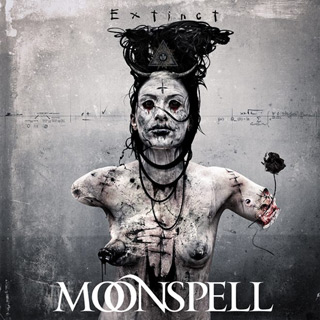

Cryptic Rock – Isn’t it remarkable that, in an age where social media is supposed to have connected us so much, the end result is that you actually feel less connected? There’s something soulless and even deranged about social media and you have to wonder if that contributes to our condition.
Fernando Ribiero – I think so. It’s something that we cannot get around. I think people just replaced feeling true feelings by the opportunity of expressing an opinion. It’s very poisoning, but I just work on the social media networking with Moonspell. And you get everything there: you get praise, you get hate, and you just have to look at it as a big stage. It’s just numbers, really, because I think we put ourselves in this position. Honestly, as an ex-philosophy student, I was taught to believe in mankind. I was taught to believe that we have ethics, that we behave for the greater good of our community, our family; that there are morals. There’s also a way of appreciating works of art that’s respect.
But I think nowadays we just swept under the rug all these very basic principles. Like sometimes you want to… on social networks, especially, you have a good intention of creating awareness, then you go there and you end up deleting your post because you actually… not by your own fault, you just created exactly the opposite effect. Nowadays, with all the years of suffering under the grind, the daily grind of social networking, you have to be smart, you have to be strong, strong-minded. You have to take it for what it is: it’s like a big, broken mirror.
It’s like Narcissus’ river but instead of water, the transparent water, there is a toxic waste. And nowadays, I think… how could we expect something different? It was the same when mankind split the atom, nuclear weapons were made and they say their weapon can wipe out entire cities. It’s true, but I think that, especially in music, I’ve seen a lot of my colleagues, too many, unfortunately – people we love, people we admire and looked up to – either living destructive lifestyles or killing themselves. That happened a lot even in our niche of Metal. I won’t name any names because it’s not elegant, but we all know these stories, and we all know that these people were grinded, roasted daily on the social networks. And it’s also addictive – if you wanted to know immediately what someone else thinks about you.
Cryptic Rock – It’s like what you said earlier when you first put out Wolfheart, and you had a lot of trepidation. You would get some German reviews, and you wouldn’t even know what they were saying, and you had to wait so long. Now, it’s immediate. You put up a video, there’s like a hundred comments. Somebody who has put no thought or effort into anything in their lives will look at your art that you slaved over and just write one comment: “This sucks, it reminds me of such-and-such crap.” And then that stays there forever, and if you’re not strong-minded and guarded against it, like you said, it can grind you down.
Fernando Ribiero – You have to learn how to do that, yes, because it’s unavoidable. People never slow down when traffic is going alright, they just slow down when there’s a car crash. It’s all nuts. I even once read that… I’m seeing the Iron Maiden poster just behind you. I even once read Bruce Dickinson, he is like a renaissance man – he swords fights, he flies planes – but in one interview he said… I think it’s a different adjective, but to see that even the greater men among us, they tap into the negativity. I don’t know how he does it, all the thousands of people that watch a Maiden performance. There’s a guy or a girl just being the asshole, not paying attention, and he tries to go there and focus on them and convince them by his performance. I don’t know if it’s what gets him going, I hope not, but yeah, I think that it’s symbolic.
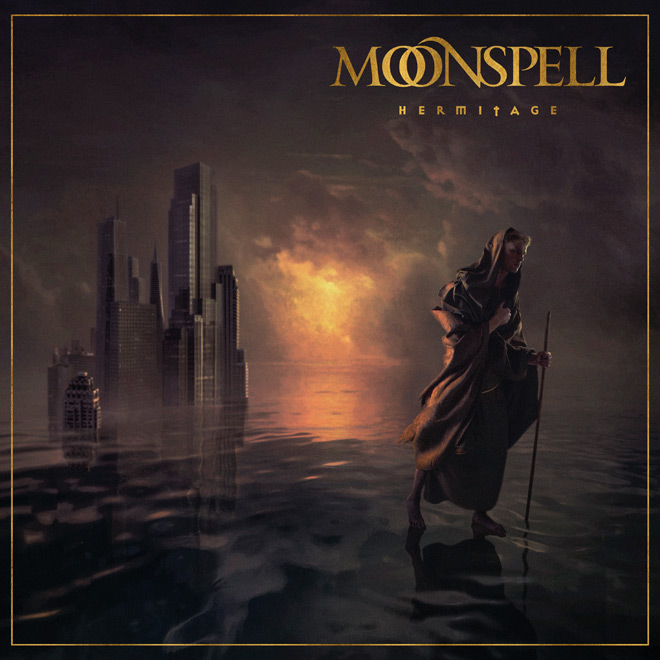
Cryptic Rock – It’s the currency of outrage, too. People love to be outraged instead of fascinated in this climate of social media. The cover art on Hermitage is amazing. Can you talk a little bit about its conception?
Fernando Ribiero – When I look to our record cover, designed by an artist from Latvia – he works, for instance, on Cradle of Filth. I didn’t want anything so pagan and cult oriented, I wanted something a little bit more Caravaggio, you know, classic, sacred art. I cannot draw at all, so I am comfortable with just giving the artist some basic concepts and lyrics and letting them do their thing. And when he drew what he calls walking on the water, he draws a hermit that is leaving from a modern city, which, for me ,represents the modern ways.
There was even some discussion with him, “Oh, we shouldn’t leave the modern city, because modern is not Moonspell.” I was like, “Well, I’m not getting into that. I’m not going to tell the guy how to draw some medieval, Lord of the Rings city.” And he’s walking on the water, which, in literature, you call that the suspension of disbelief. When you’re reading a book about unicorns, if you are a guy that is totally skeptical of unicorns or dragons or whatever, or talking ravens, just go and read a good book or something that’s very real and material. The hermit we know is leaving, and he’s going we don’t know where because the cover doesn’t say. I think that’s the beauty of it.
Cryptic Rock – Some of the vocal styles you employ on Hermitage clash in the best of ways. The robust yelling on the title track and “The Hermit Saints” are so reminiscent of Wolfheart, the robust and prideful bellow. And it’s juxtaposed against music that is more sedate overall, but it works very well. You can hear a little bit of the contemplative moments on Antidote mixed with some of the recklessness of Wolfheart on this album, even though it’s a very deep and immersive album.
Fernando Ribiero – I know what you mean.
Cryptic Rock – 1755 was its own beast, centered around this very specific theme. Of all the established bands with similar tenure to Moonspell, there is not another band where, from album to album, you just don’t know where the music is going to go. Most bands follow an arc, for example Amorphis. They tend to take a particular sound as far in one direction as they can go with it, before they go off on another one. Extinct was one thing, 1755 was all the way over here, so we knew that this one was going to be in another realm. And it’s always Moonspell, it’s a great thing that you guys can do.
Fernando Ribiero – I agree with you. The Wolfheart times might be in the past, but there will always be sparks of it in our music, and one of the brightest sparks is the Bathory influence. The shouting on Hermitage and “The Hermit Saints,” they are from that Black Metal period of Bathory up to Blood Fire Death (1988). Or a little bit more like the Hammerheart (1990) and the Twilight of the Gods (1991), which we kind of emulate in a way. I think that might be weird, but I think they can be both Bathory and Pink Floyd. Because if you listen to Twilight of the Gods, there’s Pink Floyd in there as well, and sometimes we’re just like, “No, this can’t be.” But Bathory was not really listening to Venom or to Judas Priest, they were listening to Pink Floyd, they were listening to the Beatles. When I came across Type O Negative, I thought they were influenced by European music, and their favorite band turned out to be the Beatles. When I knew that I listened to the Beatles for a while, and I could see the resemblance: the vocal harmonies, the way that they put it together, even some sounds, the tambourine sound, etc.
It’s nice for an attentive listener to know where you come from, as well as the band. All the shouting, it doesn’t have to do with stuff that I normally do and it’s a totally different technique. It’s really like a technique I used more when I was younger, because it’s really bad for the vocal cords because it’s really loud. And you give it all… and it’s very loud in studio and it gets everywhere, and sometimes I had to say, “Okay, can I record it now?” Just close the door, and bam, just put the tracks down. Because this has to be done with a certain kind of attitude and folly.
A lot of the debate around Moonspell is what we’re going to do next. And, like you said, is it going to be good? Oh, it’s a sigh of relief, it’s good, or I don’t like it. And that might happen, as well. We’re probably not smart or talented enough, or maybe, more accurate, we are not that kind of band that is totally happy and fulfilled with what they did. Sometimes we like stuff. For instance, Antidote at the time was not one of our more popular albums. I think it’s a great album, because it’s unique in a way and it’s very dark, as well. But sometimes we had to spend a lot of time defending it, so I stopped defending it.
Cryptic Rock – Nothing can be “Alma Mater” because “Alma Mater” is the signature Moonspell anthem, but the song “The Hermit Saints,” can you feel 15,000 people singing that song with you at some future festival? Who came up with that lovely melody line?
Fernando Ribiero – The first line, I was just sitting here in this same room, and honestly, I’m not the guy that loves the studio. I have microphones here, I have headphones, I have sound plates and everything. But I use the program GarageBand, so I just did a couple of vocals and put it on GarageBand and sent it to the musical doctors Pedro and Ricardo. I love that song. For me, it’s one of the highlights, if not the highlight. I made sure that there was a fourth video that is coming one day before the album, and I think that even people that are saying, “Oh!” they didn’t have the chance of listening to the whole album, they would be very passionate about that song, because it’s so complete, so Metal. It doesn’t sound really like anything, it sounds like Moonspell in a way. It’s just one of those songs that you feel like… I won’t say going to the battle because that’s not the theme of the song, but you feel that gravitas. And we’re talking about something that is a little bit bigger than the common mortal shell that we have to skin off and whatever. It was a simple song to compose.
It all came from that part. We had a really cool discussion, because even though we are all members of the same band, sometimes we don’t see things the same way; a lot of times actually. So for me “Dream from the ordinary, do what is necessary” is totally the chorus of the song. But Ricardo and Pedro say, “No, that’s not the song, the chorus is ‘Silence is broken, the knot is too tight,’.” I said, “No, that’s the after-chorus.” It’s a nice discussion because I always loved songs from other bands that have such memorable parts. Well-done, not these cheesy memorable parts; but well-done parts that become memorable, and that you don’t know what’s the chorus. Now with the video, and then with the lights off, I think that will be one of the highlights for Hermitage.
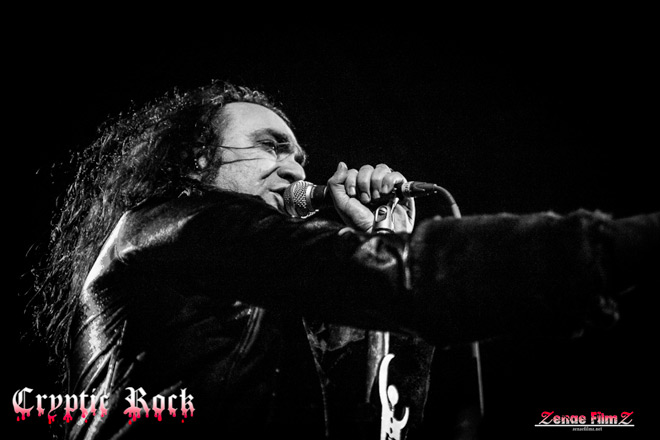
Cryptic Rock – The outro is amazing, “City Quitter,” that’s a beautiful song; this might be your “Genghis Khan.” It’s that good of an instrumental. It’s wonderful. The entire album is truly wonderful.
Fernando Ribiero – Thank you! And we thought a lot about the disposition of the album because you could definitely have a different disposition. For instance, on the vinyl, which is very hard to find because it has to be doubled – sometimes just for five minutes, then you have to have the two LPs, etc. – but one of the sides actually starts with “Solitarian” and with “The Hermit Saints.” It’s so cool when you turn the table and “The Hermit Saints” is the first song of that break that you have to do. I think that with Moonspell, sometimes this is self-criticism. We have all the parts, but we couldn’t put them together in a way that was the best way. Sometimes it happens with albums, maybe Darkness and Hope (2001), we should have made it here and there different. Antidote, the parts were well-played. Sometimes you have a good album, but sometimes you just… with the track list, you just dedicate the attention to some moods that could be better. With Hermitage, we really wanted these to be really well-done.
For me, it was obvious that “The Greater Good” had to be the first song. It introduces the album and it goes to a lot of places that the album goes afterwards, so it’s like the sum up; it’s like the trailer almost of the movie. Then before “City Quitter,” I always said that “Without Rule” has to be one of the last songs, if not the last, because it has the title, it has this conclusion feeling about it. I think that sometimes we really have to play the parts right; it’s not only about making an album that’s “Just throw it in there and just master it and let’s flip a coin.” I love records, obviously, and especially vinyl records, because I still think it’s one of the most handy but complete works of art. When you get a vinyl in your hands, or even a CD, or even a tape, you get the confluence of many minds, you know, the guy that wrote the lyrics, the guy that did the solos, the guy that drew the cover. It’s like you have a small…
Cryptic Rock – Universe.
Fernando Ribiero – Yeah! And a small piece of art in your hands, you know? It’s not that you have a Caravaggio painting, or a Goya, or whatever, but you have something in there that sums it up. I think that’s quite important in records such as Hermitage.
Cryptic Rock – Art like this is why the physical product, such as the special Hermitage box being presented here, will always be very important.
Fernando Ribiero – This is the stuff that prevents us from being the asshole in the classroom, because we pay shitloads of money to make the records. It’s respect, I think. Normally the people that say they don’t buy the records, they just go on YouTube. They don’t even go in the official YouTube to listen to the songs provided by the publisher.
Cryptic Rock – The only choice we have is to double down and make the physical product even more appealing and valuable. We’ve got to keep that in our music.
Fernando Ribiero – There is always demand for it. I am recreating an “Alma Mater record,” also to cater to the Moonspell community, because some people weren’t born or even listening to that kind of music, and they want the records, they want everything. I had to convince the labels, but now we’re getting at the same level with Napalm Records.
Cryptic Rock – Fans will be very excited about this development. So, in conclusion Fernando, since you have spoke to Cryptic Rock many times in the past, you are well aware we also cover Horror movies. Refresh us on some of your favorites in the genre.
Fernando Ribiero – I think it’s still the same, I really like that kind of ’70s Horror that was very fearful and psychological, even The Exorcist (1973), The Omen (1976), Rosemary’s Baby (1968). But there’s this new series from Alex de la Iglesia, he’s a Spanish director, he did El día de la bestia (1995), The Day of the Beast, which is an amazing, crazy Horror series inside the movie called 30 Coins. It’s about the 30 coins they paid Judas to betray Christ, and there’s this big international conspiracy to get the 30 coins together. Man, it’s mind-blowing. I really like Dr. Sleep (2019), I think it was a really cool movie. But The Stand series, it’s too COVID-19 oriented. I think that’s about it for Horror. Nowadays it’s just open the door and horror is outside.
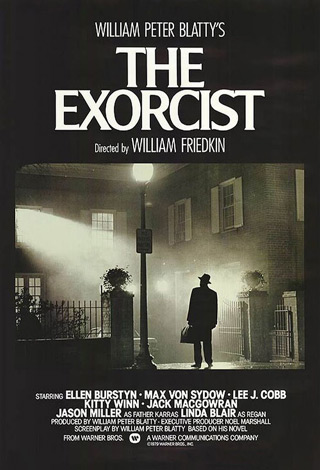
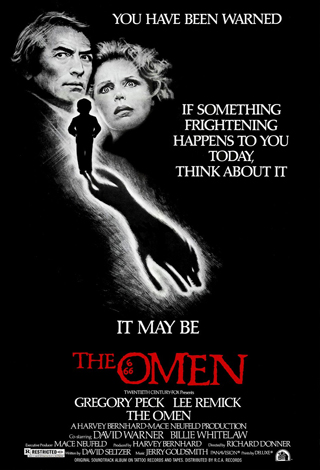


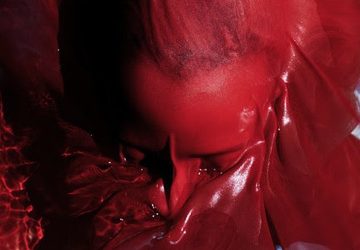
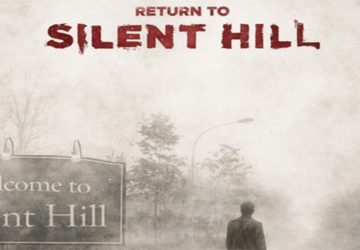
No comment